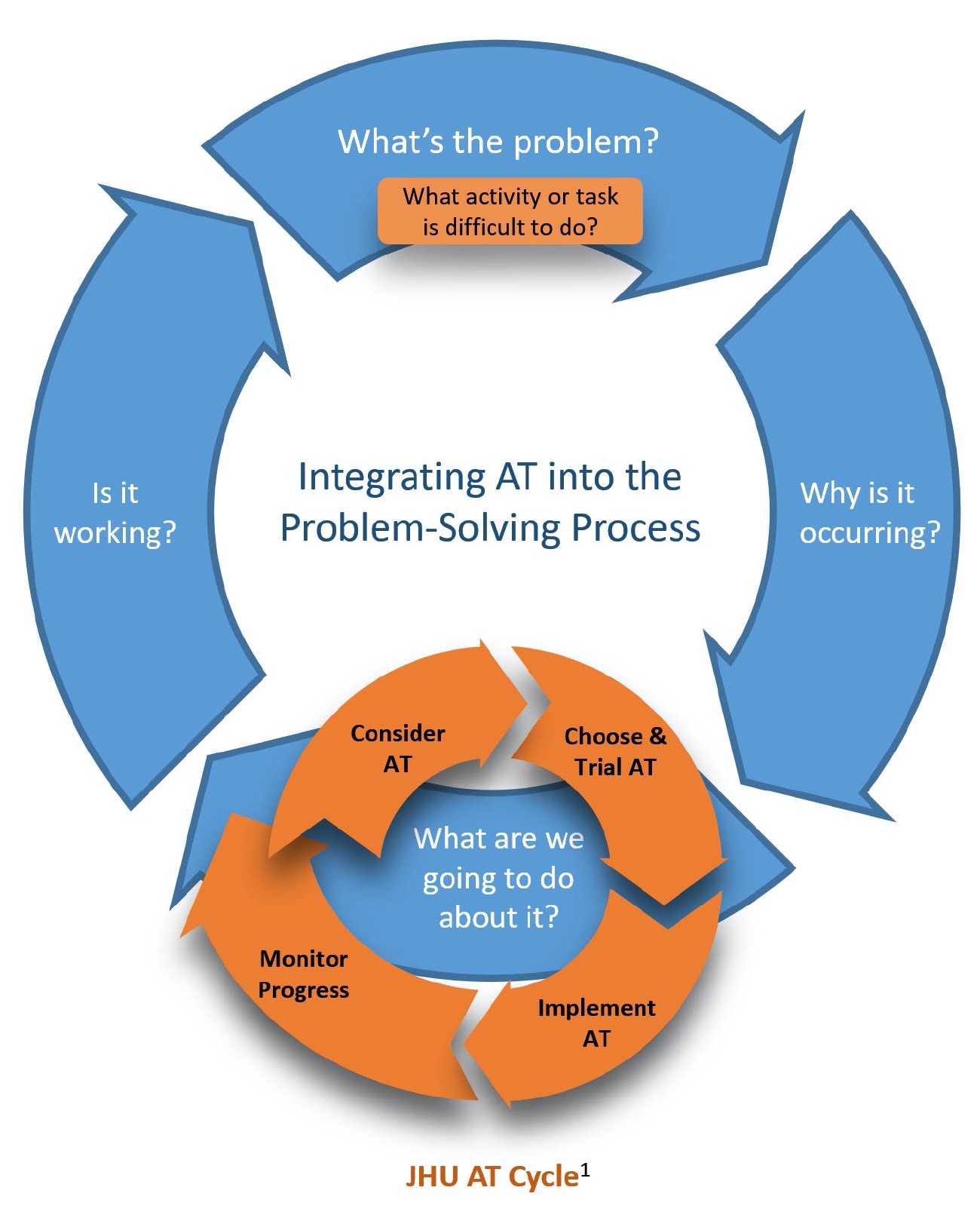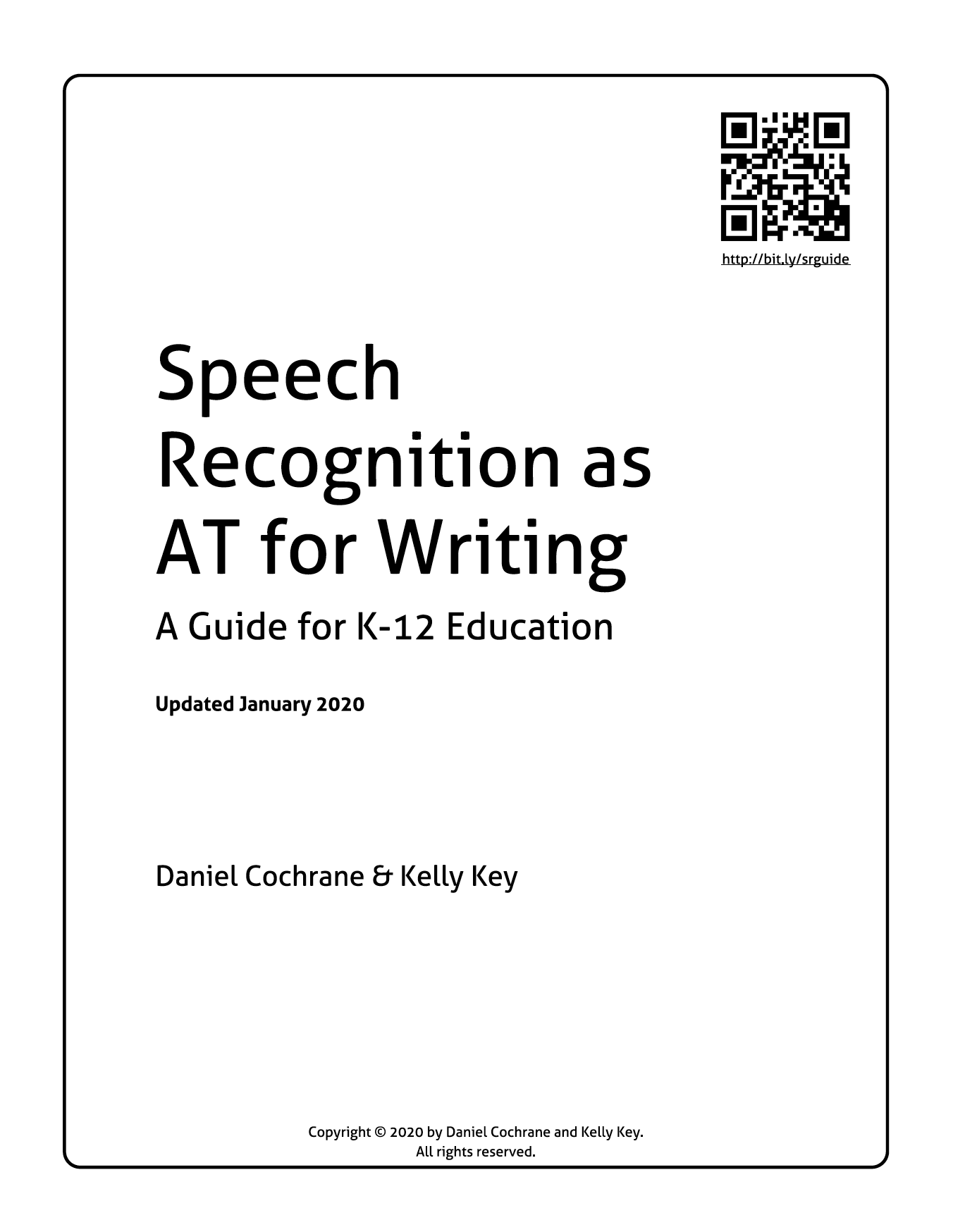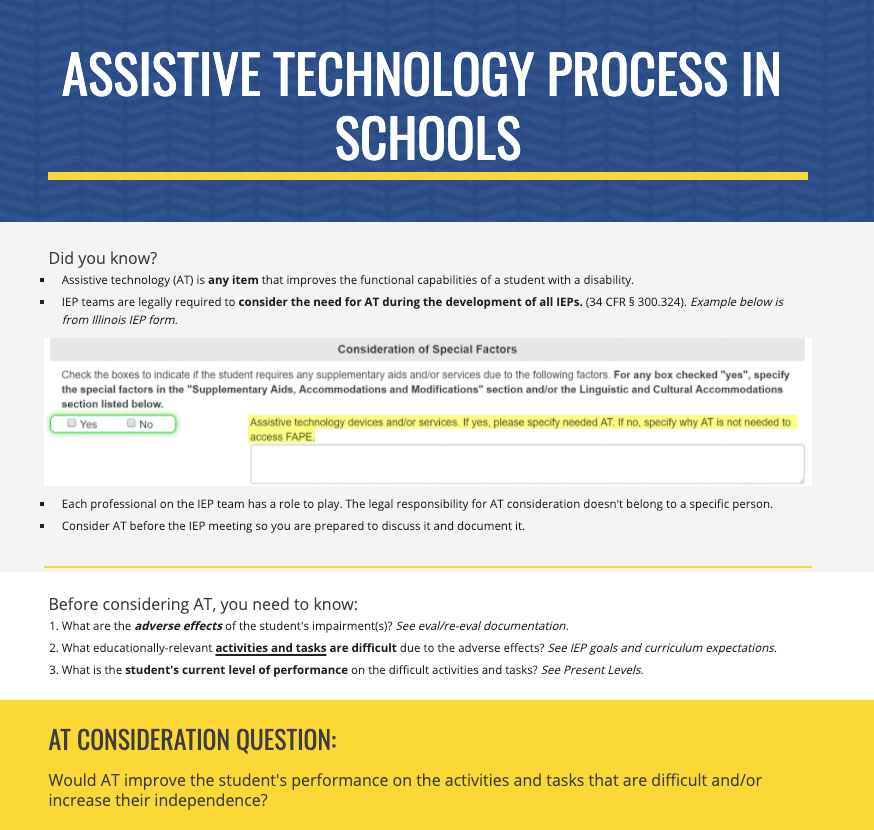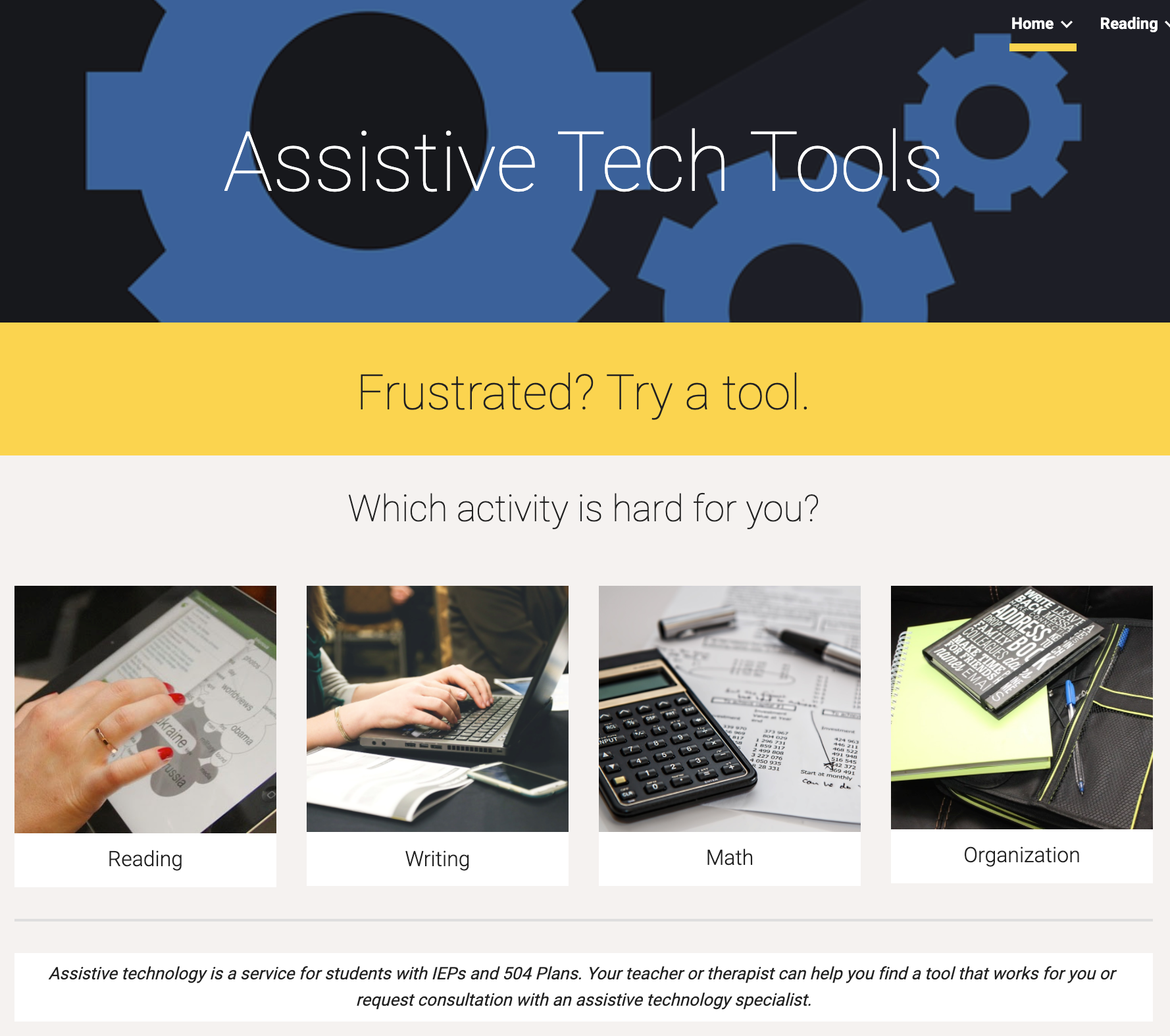Graduate courses in assistive technology
I’ve been teaching courses in assistive technology for the Assistive Technology Certificate Program (ATCP) at the University of Illinois at Chicago (UIC) since 2013. I began as an adjunct instructor while still working full time in a public school district. As I liked to explain, “I teach what I do.” In 2019, I left my school district to work full time as a clinical instructor in the ATCP and serve as a clinician for the UIC Assistive Technology Unit.
Courses
- DHD 555 Consideration, Assessment and Documentation of Assistive Technology in PK-12 Educational Settings
- DHD 548 Assistive Technology Tools in Education (co-taught with Sayard Bass and Sheri Lenzo)
Guest lectures
- DHD 440 Introduction to Assistive Technology
- Lecture: Assistive Technology in Education
- DHD 544 Assistive Technology in Early Childhood Settings
- Lecture: Assistive Technology for Early Literacy Activities
Practice Guides

Integrating Assistive Technology into the Problem-Solving Process was the first practice guide I created. It’s an ongoing project (see conference presentations below) and hopefully the basis of my doctoral research.

My colleague Kelly Key and I created a practice guide on using speech recognition with K12 students. Together and separately, we’ve presented on this guide at multiple conferences and for webinars. The guide is freely available at http://bit.ly/srguide.
Capacity-Building Websites

Assistive Technology Process in Schools
I created this site as a capacity-building resource for my former school district and continue to maintain it for students taking my course on AT assessment.

Assistive Technology Tools
I initially created this site as a resource for high school students but then it became a resource for teachers in my former district. I use it as a capacity-building example in my course on AT Tools in Education, in which professional students create their own AT websites.
Conference Presentations (selected)
I’ve been presenting national assistive technology conferences since 2009. Here’s a sample of presentations across the years:
- Beyond the SETT Framework: Integrating AT into the Common Language of the Problem-Solving Process
(Closing the Gap, 2020) - Building a Common Language for School-Based AT Services
(RESNA, 2020) - Task-Demand Analysis: The Key to AT Consideration
(Closing the Gap, 2019 and ATIA, 2019) - Speech Recognition as AT for Writing
(Maryland Assistive Technology Network Conference, 2016) - Policy and Practice of AT in the K12 Settting
(RESNA, 2015) - ATP Certification in Education
(Closing the Gap, 2014) - Integrating AT into the Problem-Solving Process
(ATIA, 2011) - Seating and Mobility for Educators
(ATIA 2009 with Carmen DiGiovane, PhD)
School district trainings (selected)
I worked in Community Unit School District 200 in Wheaton and Warrenville, IL for almost 25 years. First, I taught elementary students with disabilities as an inclusion aide, resource teacher and inclusion facilitator. Assistive technology became part of my skill set when I joined the district-wide AT team for one day a week while still teaching. Then, for the last 13 years, I served as the full-time assistive technology coordinator for the district and worked with students from early childhood through high school and transition.
I provided many professional development sessions over the years to groups of various sizes. Here is a sample in no particular order:
- Accessible Instructional Materials
- Advanced Boardmaker
- Creating Accessible Books for Students with Emergent Literacy Skills
- It’s a Swiss Army Knife: Google as AT for Students
- Lexia Reading software
- Kurzweil 3000
- Universal Design for Learning: Addressing Learner Variability in Lesson Design
- DeCoste Writing Protocol
- Beyond Access Model: Membership, Participation and Learning
- AT Process, Documentation and PARCC Accommodations
- Accessible Literacy Learning (ALL) Curriculum
- iPads in Special Education
- Make Your Own “Talking Books”
- Clicker 7 software
- AT Tools for Math
- AT Tools for Reading
- AT Tools for Writing
- Assistive Technology Consideration and Assessment